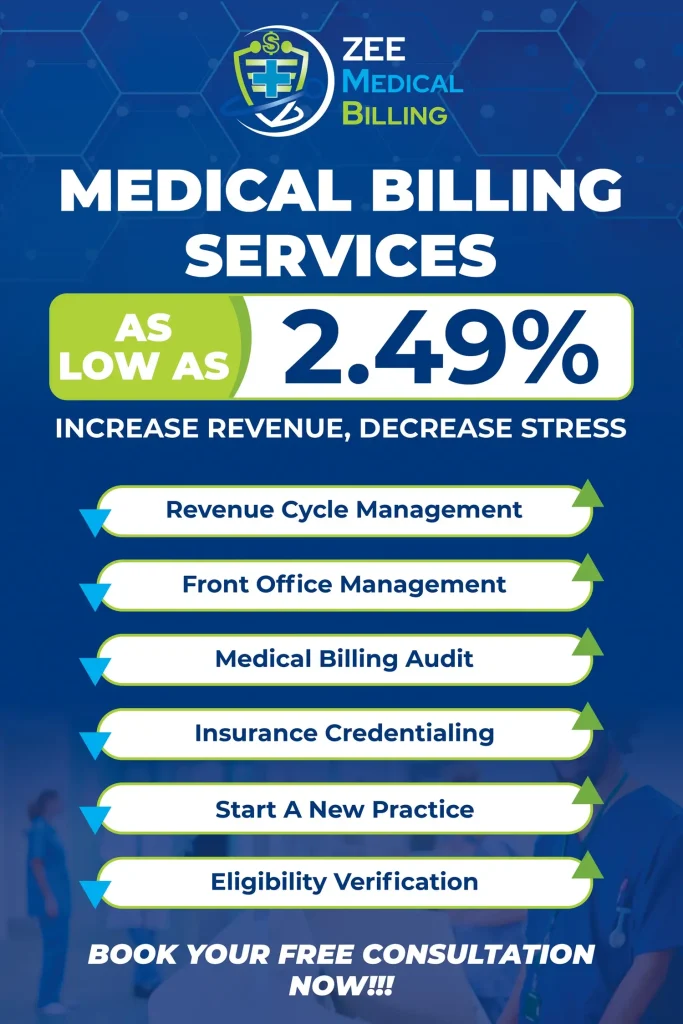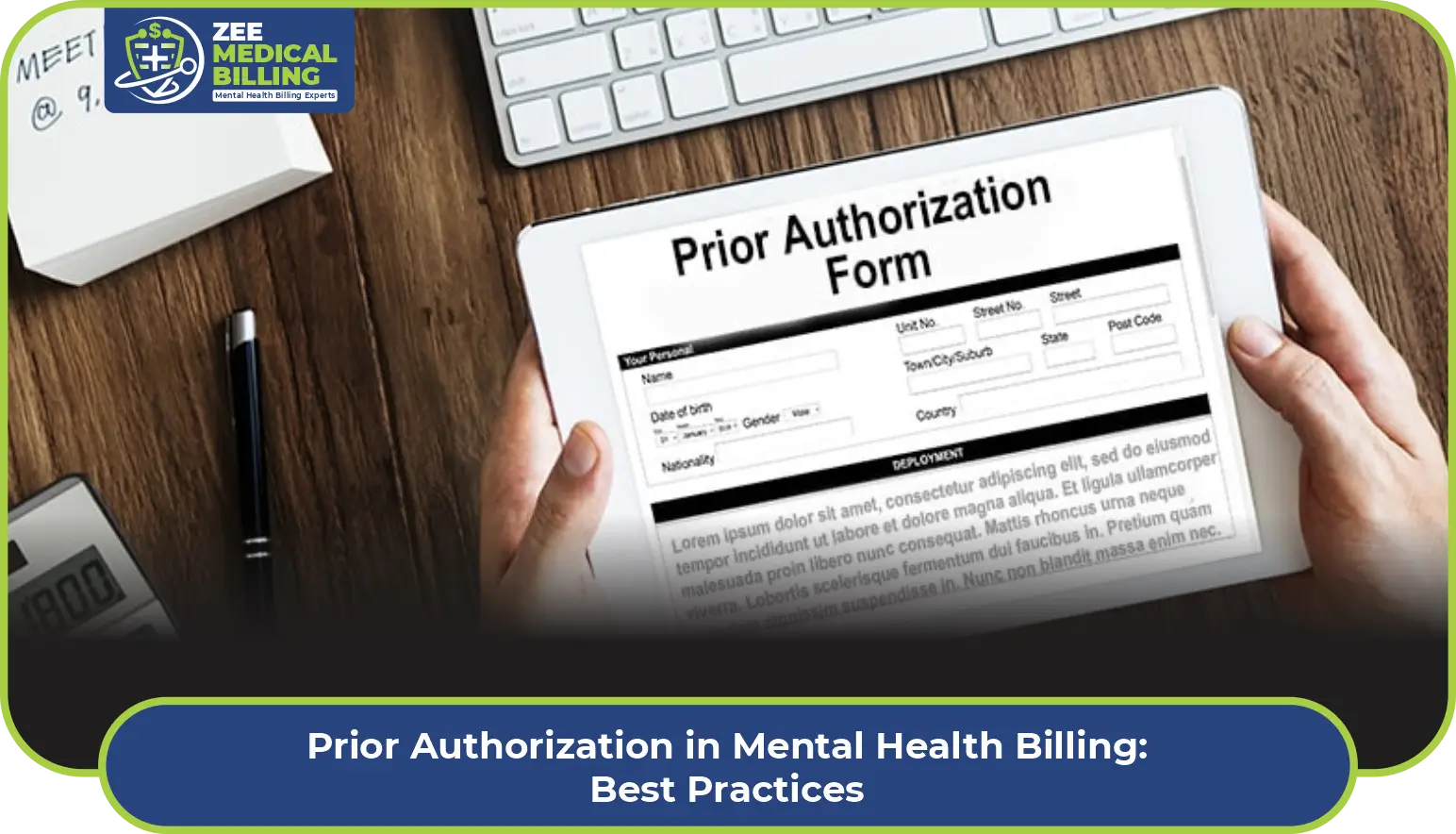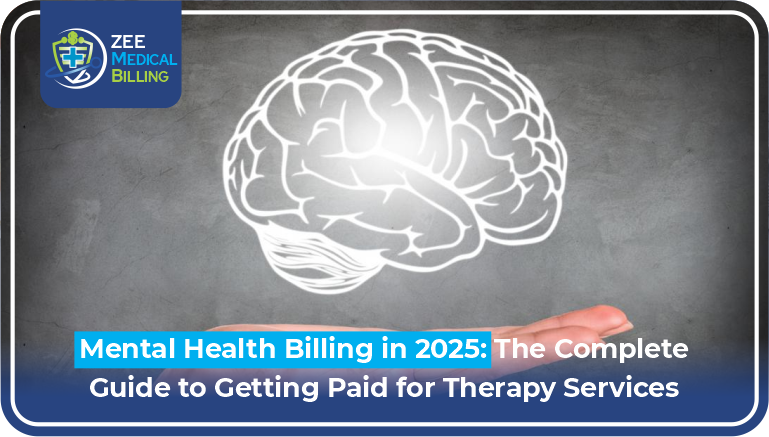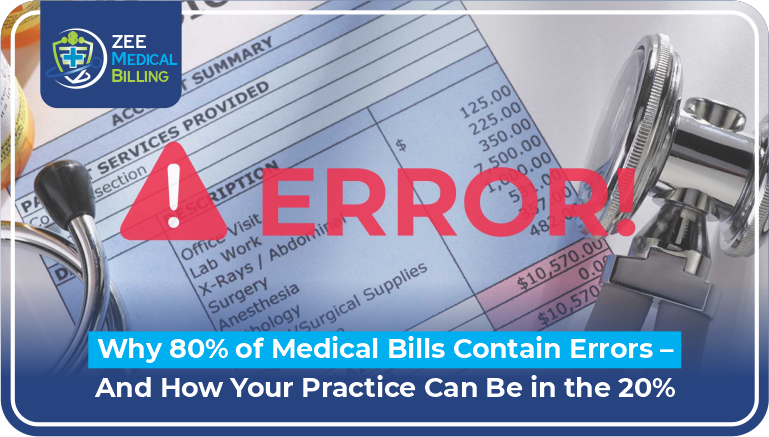Introduction to Insurance Credentialing Services
Have you ever wondered why getting your healthcare practice approved with insurance companies feels like climbing Mount Everest? You’re not alone. The credentialing process can be overwhelming, time-consuming, and downright frustrating. But here’s the good news: expert insurance credentialing services exist to make your life easier. These specialized services take the headache out of getting your practice enrolled with insurance networks, allowing you to focus on what really matters—providing excellent patient care.
What Are Insurance Credentialing Services?

The Definition and Purpose
Insurance credentialing services are specialized solutions that help healthcare providers get approved to participate in insurance networks. Think of it as your backstage pass to accepting insurance payments from patients. These services handle everything from completing applications to verifying your qualifications, ensuring that you meet all the requirements set by insurance companies.
The credentialing process involves verifying a provider’s education, training, licensure, and professional background. It’s essentially the insurance company’s way of saying, “Yes, we trust this provider to deliver quality care to our members.”
Why Credentialing Matters in Healthcare
Without proper credentialing, you can’t bill insurance companies for your services. It’s that simple. Patients today expect their healthcare providers to accept insurance, and if you’re not in-network, you’re potentially losing a significant portion of your patient base. Credentialing opens doors to new revenue streams and helps you build a sustainable practice.
The Complex Landscape of Healthcare Credentialing
Multiple Payer Requirements
Here’s where things get tricky. Each insurance company has its own unique requirements, forms, and processes. What works for Blue Cross might not work for Aetna. Multiply this by the dozens of insurance networks you might want to join, and you’ve got yourself a full-time job just managing applications.
Ever-Changing Regulations
Healthcare regulations don’t stand still. They’re constantly evolving, which means credentialing requirements change too. Staying on top of these changes while running a practice is like trying to hit a moving target blindfolded. This is precisely where professional insurance credentialing services become invaluable.
Challenge #1: Time-Consuming Application Processes
The Administrative Burden
Let’s be honest—credentialing applications are nobody’s idea of fun. We’re talking about dozens of pages, hundreds of questions, and countless supporting documents. For a busy healthcare provider, dedicating hours (or even days) to paperwork means time away from patients. The average credentialing process can take anywhere from 60 to 120 days, and that’s if everything goes smoothly.
How Expert Services Streamline the Process
Professional credentialing services have this down to a science. They know exactly what information is needed, how to present it, and where common bottlenecks occur. By leveraging their expertise, you can cut down processing time significantly. They handle the paperwork jungle so you don’t have to.
Challenge #2: Navigating Complex Documentation Requirements
Understanding What Documents Are Needed
Every insurance company wants proof of your credentials, but the specific documents required can vary wildly. You might need your medical degree, board certifications, state licenses, DEA certificates, malpractice insurance, work history, and references. Missing even one document can stall your entire application.
Avoiding Common Documentation Errors
Here’s a secret: most credentialing delays happen because of simple errors. An expired certificate here, a missing signature there, or incomplete work history can send your application back to square one. Expert credentialing services catch these errors before submission, ensuring your application is complete and accurate the first time around.
Challenge #3: Managing Multiple Insurance Networks
The Juggling Act of Different Payers
Imagine trying to remember 20 different passwords, each with unique requirements. That’s what managing multiple insurance networks feels like. Each payer has different portals, deadlines, and communication channels. Keeping track of everything manually is a recipe for missed deadlines and lost opportunities.
Centralized Management Solutions
Professional credentialing services use sophisticated systems to track all your applications in one place. They know which insurance companies you’re enrolled with, which applications are pending, and when renewals are due. This centralized approach eliminates confusion and ensures nothing falls through the cracks.
Challenge #4: Dealing with Application Rejections and Delays
Common Reasons for Rejections
Applications get rejected for various reasons: incomplete information, unverified credentials, gaps in employment history, or failure to meet specific network requirements. Each rejection means starting over, which translates to more delays and lost revenue.
How Experts Prevent Delays
Companies like ZEE Medical Billing have seen it all. Their experience means they know exactly what insurance companies are looking for and how to present your information in the best possible light. They proactively address potential issues before they become problems, dramatically reducing rejection rates.
Challenge #5: Staying Compliant with Credentialing Standards
Understanding Regulatory Requirements
Credentialing isn’t just about insurance companies—it’s also about meeting state and federal regulations. CAQH standards, NCQA requirements, and state-specific licensing rules all come into play. Understanding these requirements requires specialized knowledge that most providers simply don’t have time to develop.
Maintaining Ongoing Compliance
Credentialing isn’t a one-and-done deal. It requires ongoing maintenance. Your licenses need renewal, your insurance needs updating, and your credentials need reverification. Expert services monitor these requirements continuously, ensuring you remain compliant without lifting a finger.
Challenge #6: Re-Credentialing and Renewal Management
The Risk of Expired Credentials
What happens when your credentials expire? You could be removed from insurance networks, meaning you can no longer bill those payers. This can devastate your practice’s revenue stream. The problem is that renewal deadlines sneak up on busy providers who are focused on patient care.
Automated Tracking Systems
Professional credentialing services use automated systems that track expiration dates and send alerts well in advance. They initiate the re-credentialing process early, ensuring seamless continuity of your network participation. It’s like having a personal assistant who never forgets an important deadline.
The Financial Impact of Credentialing Challenges
Lost Revenue from Delayed Credentialing
Every day you’re not credentialed with an insurance network is a day you’re potentially turning away patients or providing services you can’t bill for. If your credentialing is delayed by even a month, you could lose thousands of dollars in revenue. For new practices, these delays can be especially damaging.
ROI of Professional Credentialing Services
While there’s a cost associated with professional credentialing services, the return on investment is substantial. Faster credentialing means earlier revenue, fewer rejections mean less wasted time, and expert guidance means maximizing your network participation. Most practices find that professional services pay for themselves many times over.
How ZEE Medical Billing Solves These Challenges

Comprehensive Credentialing Solutions
ZEE Medical Billing offers end-to-end insurance credentialing services designed to eliminate the hassles of provider enrollment. Their team handles everything from initial applications to ongoing maintenance, ensuring you’re always in good standing with insurance networks.
What sets them apart is their personalized approach. They understand that every practice is unique, with specific needs and goals. Whether you’re a solo practitioner just starting out or an established practice expanding into new networks, they tailor their services to fit your situation.
Industry Expertise and Support
With years of experience in medical billing and credentialing, ZEE Medical Billing brings deep industry knowledge to the table. They maintain relationships with major insurance carriers and understand the nuances of different payer requirements. Their team stays updated on regulatory changes, ensuring your practice remains compliant.
Beyond just handling paperwork, they provide strategic guidance on which insurance networks make sense for your practice. This consultation helps you maximize your revenue potential while maintaining a manageable workload.
The Benefits of Outsourcing Insurance Credentialing Services
Focus on Patient Care
When you outsource credentialing, you free up valuable time and mental energy. Instead of wrestling with paperwork, you can focus on what you do best—caring for patients. This isn’t just about convenience; it’s about practicing at the top of your license and maximizing your clinical impact.
Reduced Administrative Costs
Hiring dedicated staff to manage credentialing in-house is expensive. You need to pay salaries, provide benefits, and invest in training. Outsourcing credentialing services typically costs less than maintaining in-house staff while providing access to a team of experts who live and breathe credentialing.
Choosing the Right Credentialing Partner
Key Factors to Consider
Not all credentialing services are created equal. When evaluating potential partners, consider their experience in your specialty, their track record with insurance companies, and their technology platform. Look for transparency in pricing and clear communication channels. You want a partner who will keep you informed throughout the process.
Questions to Ask Potential Providers
Before committing to a credentialing service, ask questions like: What’s your average turnaround time? How do you handle rejections? What ongoing support do you provide? How do you track credentialing deadlines? Do you offer re-credentialing services? A reputable provider like ZEE Medical Billing will be happy to answer these questions and provide references.
Conclusion
Navigating the world of insurance credentialing doesn’t have to be a nightmare. While the challenges are real—from time-consuming applications to complex documentation requirements and ongoing compliance demands—expert insurance credentialing services provide proven solutions. By partnering with experienced professionals, you can overcome these obstacles efficiently, protect your revenue stream, and focus on delivering exceptional patient care.
The investment in professional credentialing services pays dividends through faster enrollment, fewer rejections, ongoing compliance, and peace of mind. Whether you’re just starting your practice or looking to expand your insurance networks, having a trusted partner like ZEE Medical Billing makes all the difference. Don’t let credentialing challenges hold your practice back—reach out to experts who can help you navigate this complex landscape with confidence.
FAQs
1. How long does the insurance credentialing process typically take?
The credentialing process usually takes between 60 to 120 days, though this can vary depending on the insurance company and the completeness of your application. Working with expert credentialing services can help expedite this timeline by ensuring all documentation is correct from the start and proactively following up with payers.
2. Can I start seeing patients while my credentialing is pending?
You can see patients, but you cannot bill their insurance until your credentialing is complete. Some providers choose to see patients on a self-pay basis during this period, though this can limit your patient volume. This is why expediting the credentialing process through professional services is so valuable.
3. What happens if my credentialing application is rejected?
If your application is rejected, you’ll need to address the specific issues raised by the insurance company and resubmit. This can significantly delay your enrollment. Professional credentialing services help prevent rejections by thoroughly reviewing applications before submission and ensuring all requirements are met.
4. Do I need to re-credential with insurance companies, and how often?
Yes, re-credentialing is required periodically, typically every two to three years depending on the insurance company. Additionally, you’ll need to update your credentials whenever there are significant changes, such as a new license, location, or specialty. Professional services track these deadlines and manage the re-credentialing process for you.
5. Is it worth outsourcing credentialing for a small practice?
Absolutely. Small practices often benefit the most from outsourcing credentialing because they typically don’t have dedicated administrative staff with credentialing expertise. The cost of professional services is usually less than hiring in-house staff, and the time saved allows you to focus on growing your practice and caring for patients.
Follow Us
- Instagram: @zee_medical_billing
- Facebook: ZeeMedicalBilling
- YouTube: Zee Medical Billing Channel
- Twitter/X: @BillingZee
- LinkedIn: Zee Medical Billing Company


























